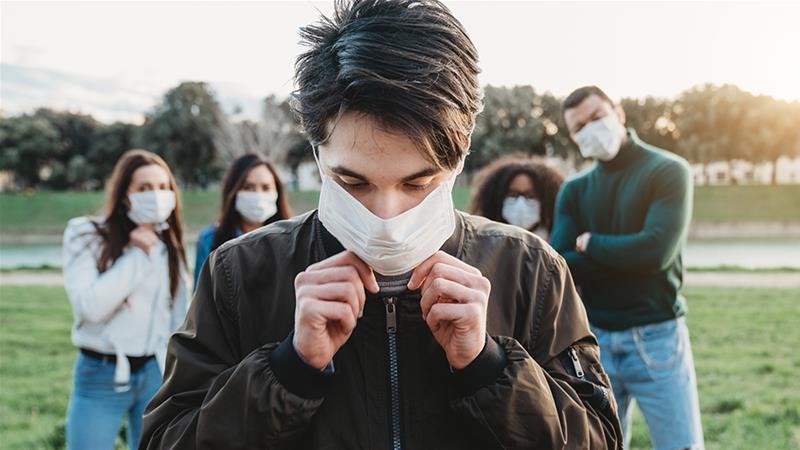
Although most of those who experience severe cases of coronavirus are older, young, healthy people are also at risk [Getty Images]
This came in contrast to all the information that suggested only older patients or those with underlying health conditions were at severe risk of developing complications of the coronavirus, including potentially life-threatening pneumonia.
Sadly, he has already been proved right. This week, an infant was reported to have died from the virus in the US state of Illinois. It is not yet clear whether there were underlying health conditions in that case. Meanwhile, a previously healthy teenager died late last week in Los Angeles after contracting the virus. In the UK, two teenagers have been reported to have died after succumbing to coronavirus - one was 19 and the other 13, with no known underlying health issues.
Studies of the outbreak so far show that eight in 10 patients who are struck down with a severe case of coronavirus will be over 65. But two will be younger. And when you multiply that out on a worldwide scale, that is a lot of young people who could become casualties of the COVID-19 virus.
People under the age of 50 are supposed to have healthier immune systems than those who are older. This means their bodies should recognise an alien agent, such as the coronavirus, fairly quickly after it gets inside their cells, and start producing antibodies to fight it.
Before the virus has had time to cause any of the serious breathing problems and nasty pneumonias in their lungs, their immune system should have fought it off, and they should be well on the road to recovery, suffering only a fever, dry cough and fatigue.
Ironically, however, it is the youthful immune system that may become the problem in some people - and this is what was confirmed to have happened in at least some of the cases of young people dying after contracting coronavirus.
As the immune system recognises and prepares to attack the virus, small unknown and otherwise harmless genetic or environmental factors can cause the immune system to go into overdrive.
Inflammatory cells called cytokines, which help produce a hostile environment for the infection, set off a chain event called a "cytokine storm". This is an over-reaction on the part of the immune system, and it is not common.
What this means is that the immune system is unable to turn itself off once it has generated enough of a defence against the virus. Inflammation caused by the immune system continues at an unchecked and accelerated rate and floods the lungs with fluid, making it difficult to breathe.
This fluid then attracts a feeding frenzy from bacteria that are normally kept in check. These now multiply exponentially, and the lungs fill with pus. This causes pneumonia, requiring urgent hospitalisation.
A prolonged cytokine storm will eventually shut down breathing completely. The airways get clogged and cells no longer properly absorb oxygen.
A fine balance must then be struck by doctors caring for these patients as they will have to prescribe drugs to suppress their immune systems in order to stop the overreaction - but not switch them off completely, so they can continue to fight the infection. At the same time, these patients need help breathing with a ventilator until their lungs are able to work properly again.
The threat to health workers
We have also seen a number of younger, healthy doctors and nurses needing hospital treatment for coronavirus. In Italy alone, more than 50 doctors have died from the disease.
The theory, here, is different from that of the "cytokine storm" explanation. With healthcare workers, it is thought that repeated exposure to the virus through treating multiple patients is causing the problem.
These healthcare professionals have been exposed to a high "viral load" due to repeated and excessive exposure to the virus. This means the immune system has not managed to overcome the initial virus these medics were exposed to before they have been exposed to it again, usually on the same day.
The length and frequency of your exposure to the virus can make it difficult for your immune system to keep up. This high viral load can, therefore, overwhelm the immune system and these people - exposed over and over again in a short time - have ended up very sick as a result.
This is why it is so important for medical personnel to be given appropriate personal protective equipment (PPE) to wear when treating patients with COVID-19. This remains a contentious issue in many countries.
Source
 Although most of those who experience severe cases of coronavirus are older, young, healthy people are also at risk [Getty Images]
Although most of those who experience severe cases of coronavirus are older, young, healthy people are also at risk [Getty Images]


Comments
Post a Comment